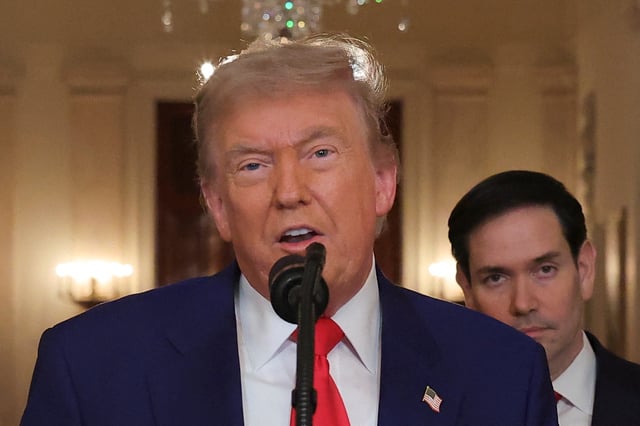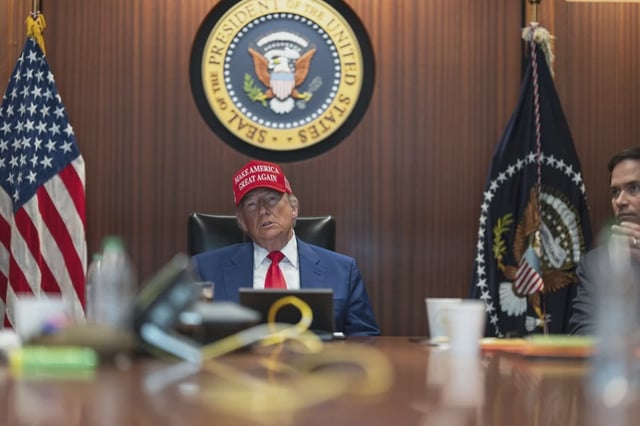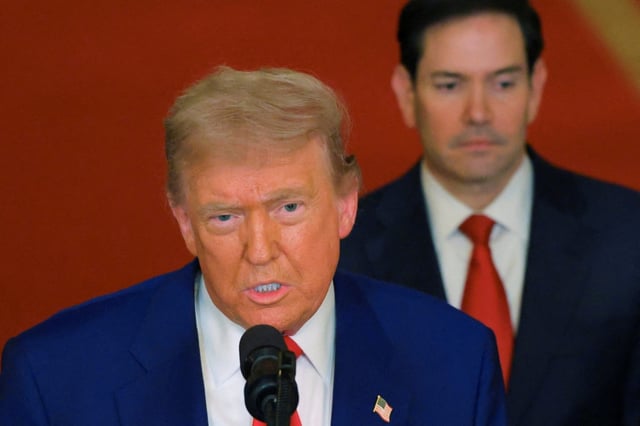Overview
- In coordination with Israel, U.S. B-2 stealth bombers dropped GBU-57 bunker-busters on Iran’s uranium enrichment sites at Natanz, Fordow and Isfahan on June 21, significantly degrading Tehran’s nuclear program.
- Iran launched a 14-missile assault on U.S. bases in Qatar and Iraq on June 23, with defensive systems intercepting 13 projectiles and one diverting harmlessly.
- Tehran provided advance notice of the incoming barrage, enabling the Emir of Qatar to oversee evacuations at al-Udeid Air Base that resulted in no injuries or fatalities.
- President Trump characterized Iran’s counterstrike as “very weak,” confirmed that no Americans were harmed and declared that both sides had stood down with no further hostilities expected.
- United Nations Secretary-General António Guterres and European governments have called for renewed negotiations to secure regional stability and avert further escalation.



